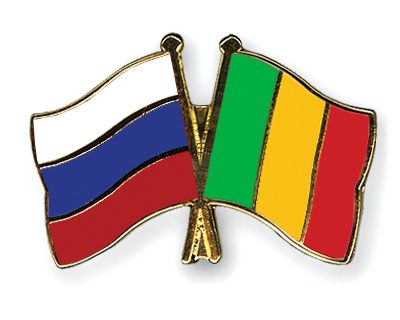On a visit to Moscow, Visiting Malian Foreign Minister Abdoulaye Diop and his Russian counterpart Sergei Lavrov met in Moscow to discuss the main areas of military cooperation between the two countries.
Russia rolls out the red carpet for Mali. At the invitation of the head of Russian diplomacy, Abdoulaye Diop is visiting Moscow on November 10-12, 2021. The main points of this high-profile trip were unveiled at a joint press briefing by the two ministers.
From the outset, the two countries are considering “major projects” on the basis of defense agreements to fight terrorism in Mali. In addition to military equipment, “Russia will also continue to train Malian military officers,” Sergei Lavrov assured.
Lavrov also announced Russia’s support to help the Malian junta to face the security threat, an argument raised by the Malian authorities to justify the postponement of the presidential and legislative elections of February 27, 2022. “We understand the need to strengthen the fight against terrorism. We intend to make a certain amount of equipment available to the government of Mali. We are going to do everything possible to prevent the terrorist threat to the structure of the state.”
Russia, which sits on the UN Security Council with veto power, called on the UN to give priority to dialogue with countries in crisis in Africa and exclude any interference in these countries’ internal affairs. Sergei Lavrov said he gladly accepted his counterpart’s invitation to visit Mali.
For his part, Mr. Abdoulaye Diop explained that his presence in the Russian capital is to give an “impetus to defense and security cooperation” between the two countries. At a time when France announced the end of the Barkhane Force with the closure of its three military bases in northern Mali, Abdoulaye Diop spoke of the need for his country to have the necessary capacity to ensure their security.
“It is a relationship that is not directed against anyone but is supposed to take care of the concerns of Malians to ensure their own security. A relationship that is supposed to defend Mali’s territorial integrity and sovereignty, on the one hand, and on the other, strengthen our country’s stability, but also find a win-win relationship on the economic and commercial levels,” he said.
Last month, Moscow delivered military equipment to the landlocked West African nation, according to Mr. Diop, who said that his country is not “outsourcing” its security through this military cooperation agreement with Russia.”
As such, Mali’s Foreign Minister firmly denied the signing of a contract with the Russian paramilitary company Wagner, stating that the relationship between Mali and Russia is a “State-to-State relationship.”
CD/fss/abj/APA


